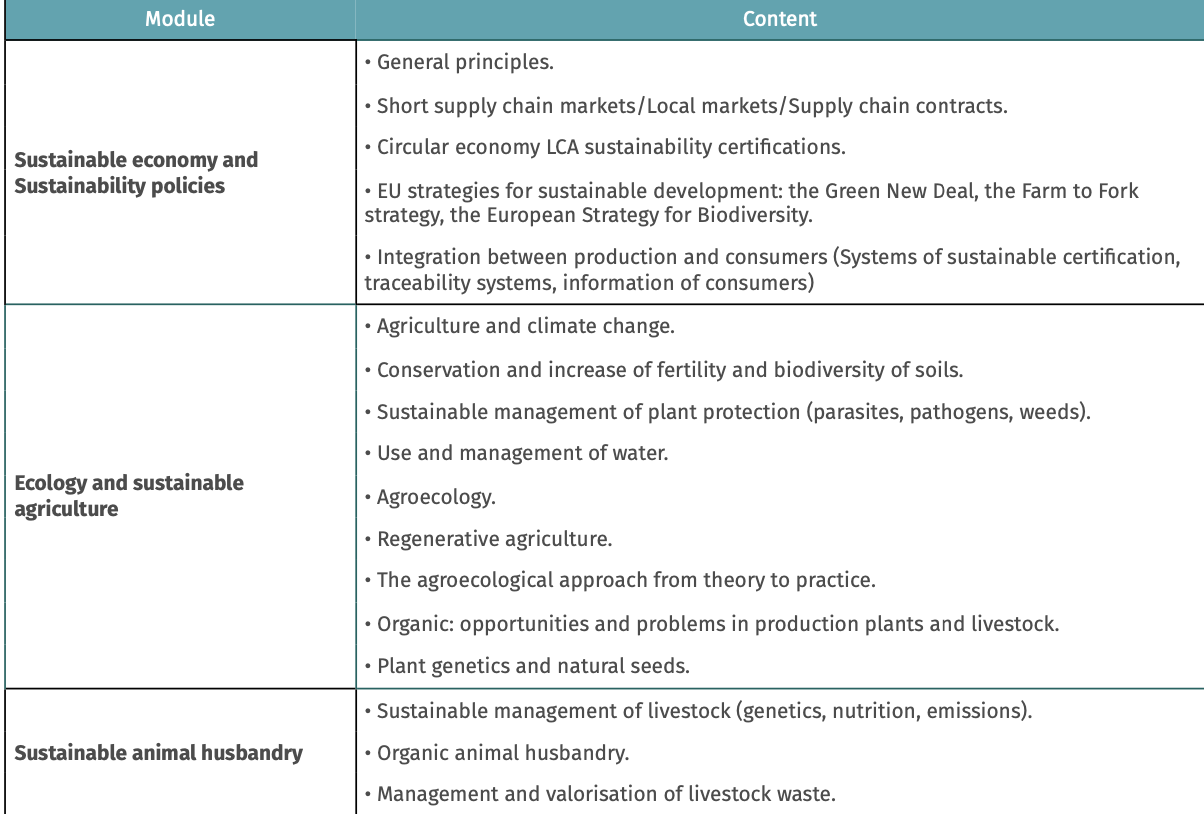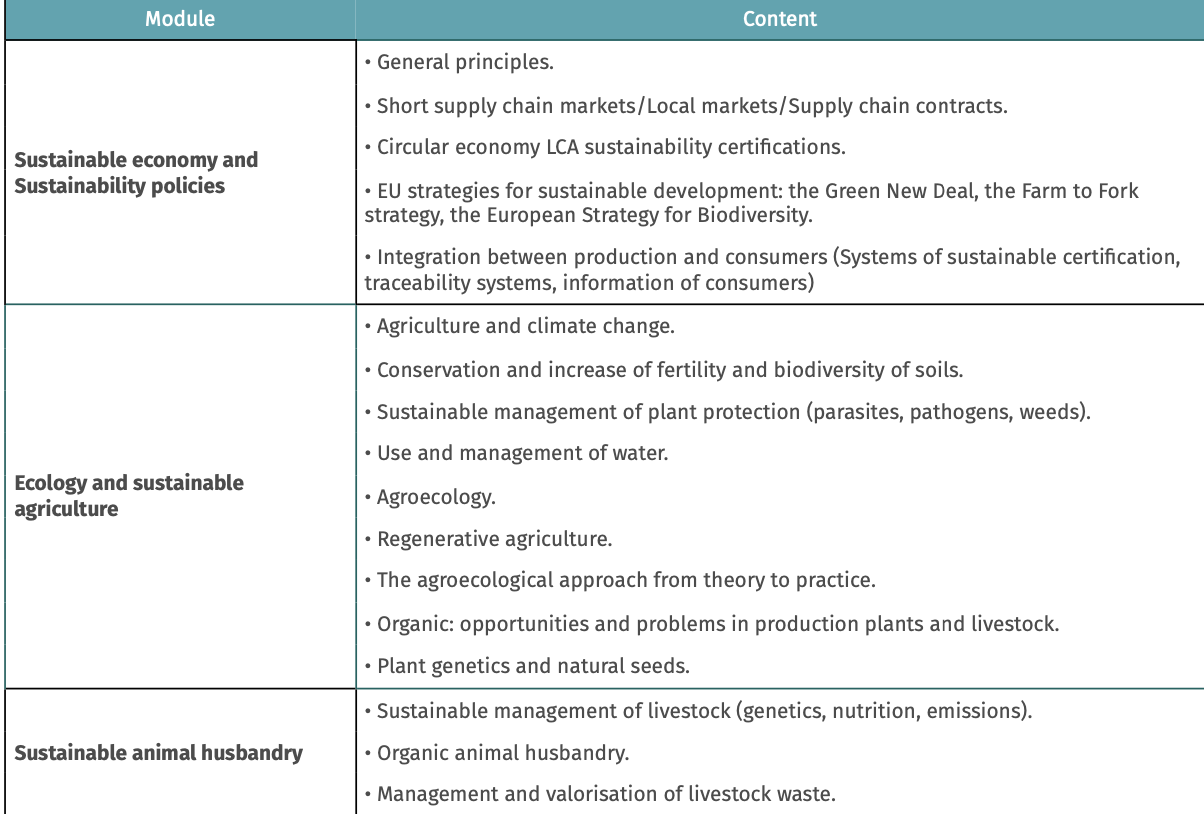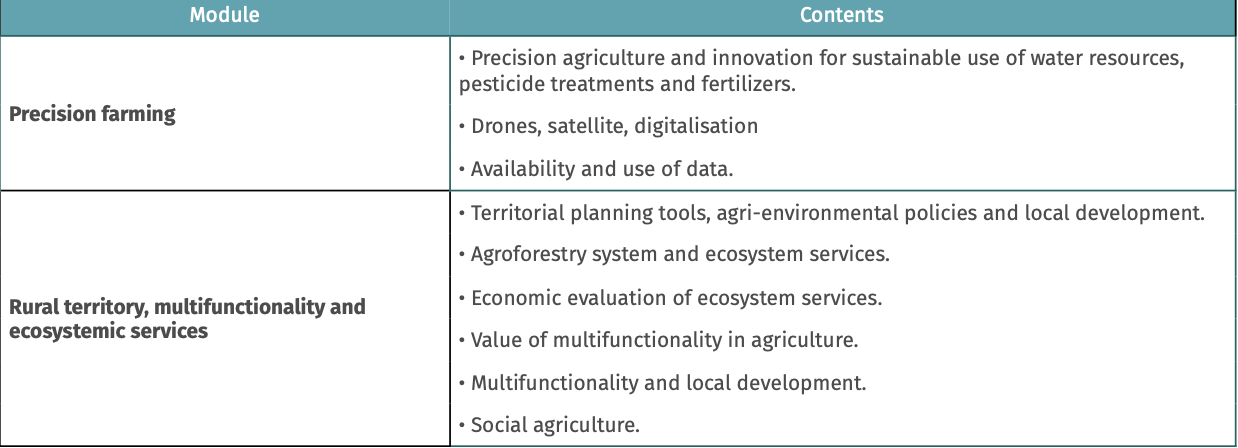2024
climate change mitigation
farm demonstration

To support the ecological transitions outlined in the Common Agricultural Policy (CAP), it is essential to enhance the capacities of farm advisors. The CAP aims to address climate change, protect natural resources, and enhance biodiversity in a socially and economically sustainable manner.
Key measures, such as conditionality standards, eco-schemes, and rural development interventions, emphasize the importance of green farming practices.
Farm advisory services play a critical role in guiding farmers through these transitions by:
The "Course for Environmental Trainer" addresses the gap of local expertise and professionalization about the environmental and social challenges posed by the Green Deal and the Farm to Fork Strategy. Following the idea of Casa dell’Agricoltura, a local NGO, this has been designed based on a thorough understanding of the local context, awareness of agricultural and environmental issues, and collaboration among key actors in the local Agricultural Knowledge and Innovation System (AKIS). These latter, equipped with relevant transdisciplinary skills, have come together to organize, fund, and implement this course (box 1).
The "Course for Environmental Trainer" is a postgraduate specialization program aimed at training professional advisors who can support farms in their ecological transition through a holistic approach that aligns sustainable farming practices with business and territorial development.Specific capacity building goals pursued through this training course are:
Box 1: Promoters of the course
- Casa dell'Agricoltura is an NGO pursuing cultural and social goals relating to the valorisation of agriculture and of its workers in urban areas.
- Fondazione CARIPLO is a philanthropic entity devoted to combating inequalities and promoting the economic and social growth of the territory.
- University of Milan, Department of Environmental Sciences and Policies and the Department of Agricultural and Environmental Sciences
- CREA - Council for Agricultural Research and Economics.
- Italian National Rural Network, that includes specific actions to disseminate knowledge on the CAP and its objectives.
- ODAF – the provincial order of the agronomists and foresters.
- Fondazione Cascina Cotica, an NGO devoted to favoring the sense of community as a value for social relations.
Specific capacity building goals pursued through this training course are:
The course is free of charge and the participation includes training material, on field visits and lunches. Most of the trainees are young students and farmers from marginal areas.
The course is completely free for the attendances and admits a maximum of 15 participants.
Participants are selected through a public call for applications and 2/3 of the seats are reserved to recent graduated. The training programme is defined in collaboration with all the supporters that also provide the trainers and infrastructures. Every year the modules and methods are revised to be better aligned to the observed issues and the needs of eh potential trainees.
A scientific committee, composed by their representatives, steers the whole training course and defines selection criteria of candidates and valuations of the trainees.
The training course is structured around topic-related modules (Table 1) and 80 in presence training hours distributed over 5 months, by including classroom (80 hours) and on field (4/5 visits on farms, research centres, universities, …) lessons, and critical reflection exercises (15 hours).
The lessons are held during the weekends (6 hours on Friday and 4 hours on Saturday), to facilitate access by workers (e.g. advisors, farmers).
The critical reflection exercise consists of a 3-hour discussion between 2 farmers generally with different ideas regarding the topic of each module of the course (e.g. organic and agro-ecological farming). This creates an interesting dialogue among the students.
An evaluation of the students is provided at the end of each teaching module and the course is successfully passed with 75% attendance of the lessons and following a final test.
Table 1: Exemplary training modules


This practice can be promoted as training intervention type under the condition of:
Casa dell'Agricoltura: https://casagricoltura.org/formatore-agricolo-ambientale/